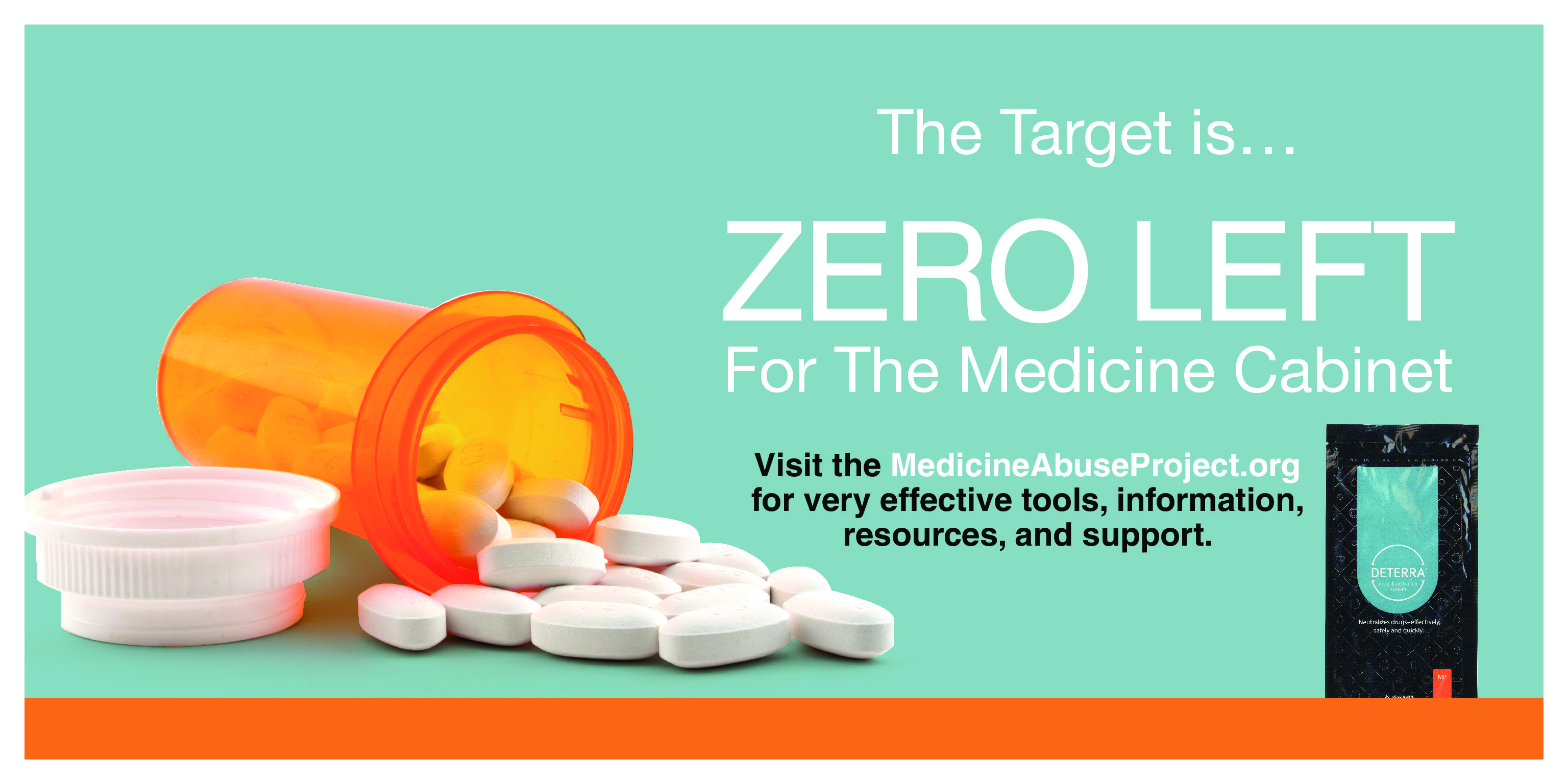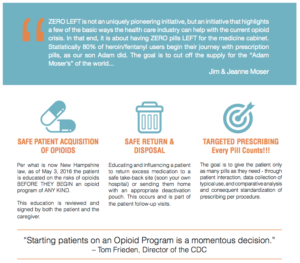
Parents expect to have awkward conversations with their kids; the birds and the bees, the dangers of drinking and driving and the consequences of taking street drugs being a few. But, as we are unfortunately finding out as of late, many parents aren’t talking to their kids about prescription pill abuse, which has led to an opioid overdose epidemic.
No one regrets not having that conversation more than Jim and Jeanne Moser, the parents of Adam Moser, who was only 27 when he died from a fentanyl overdose in 2015. According to the CDC, more than 33,000 people died from an opioid overdose in 2015 – more than any year on record – with prescription opioids accounting for nearly half of that amount.
Prescription opioids are most often distributed in pill form to treat severe pain after surgery. Common name brands include Demerol®, OxyContin®, Percocet® Vicodin®, Percodan® and Tylox®. Heroin and fentanyl are also in the opioid family, but are much more potent. Unfortunately, many prescription opioid addictions lead to an abuse and eventual overdose of these highly powerful drugs.
The Mosers didn’t know about Adam’s prescription pill habit until it was too late. “We used to keep our medicine in the kitchen,” said Jim. “And I thought, how did we miss that? Then I realized, we never absorbed that information ourselves because we just didn’t know.”
But the Mosers aren’t the only ones who were in the dark regarding the risks of keeping these dangerous prescriptions around. That’s why they started the Zero Left for the Medicine Cabinet – also known as Zero Left – campaign to encourage the healthcare industry to stand up to the opioid crisis by educating patients on the dangers of opioids and the proper methods for the safe storage and disposal of pills.
Overprescribing medication has led to an excess of prescription pills in the hands of patients. Another issue is the amount of pills initially prescribed, which ends up setting the pain expectation for patients who may not necessarily even need to take an entire bottle of pills throughout their recovery.
While recognizing that prescription opioids are an essential part of healthcare, the Mosers hope that physicians will rethink their prescribing habits, as well as take the time to talk to their patients before and after prescribing opioids. Simply asking “How many pills have you used so far?” in follow up appointments after surgeries can start the conversation on informing patients of how they can correctly dispose of pills they don’t need.
The Zero Left campaign is also creating informational materials that doctors can distribute to patients that are prescribed opioids. The materials include information on the risks and side effects of the medication and how to safely store and dispose of pills.
The family is also encouraging healthcare facilities in New Hampshire to distribute Deterra Drug Deactivation Systems to reinforce safe and proper pill disposal. Medication disposal displays will also soon be popping up at select hospitals and other designated take-back locations, but the Mosers are hoping they eventually become a staple in all healthcare environments.
But the first step in tackling the opioid crisis is education. The Zero Left campaign states:
“This initiative evolved from our limited knowledge of opioids… not understanding their unique addictive nature and trademark diaphragmatic paralysis, all lessons we learned too late.”
Children who understand the full risks of abusing prescription medication are much less likely to develop dangerous habits, and Zero Left wants people to start talking.
Access Sports is taking every possible step to enforce screening and preventative initiatives to support the fight against opioid addictions. From limiting dosages to thorough patient education, to implementing pharmacogenetics and alternative pain treatments, we’re committed to doing everything we can to end the opioid epidemic.
For more information about the Mosers’ Zero Left campaign or to support their cause, please contact one of our offices.
We also highly recommend visiting MedicineAbuseProject.org for tools and resources that can be used to understand and inform others about the dangers of prescription medication. The ZeroLeft Trifold and ZeroLeft Healthcare pamphlets are also valuable resources.



